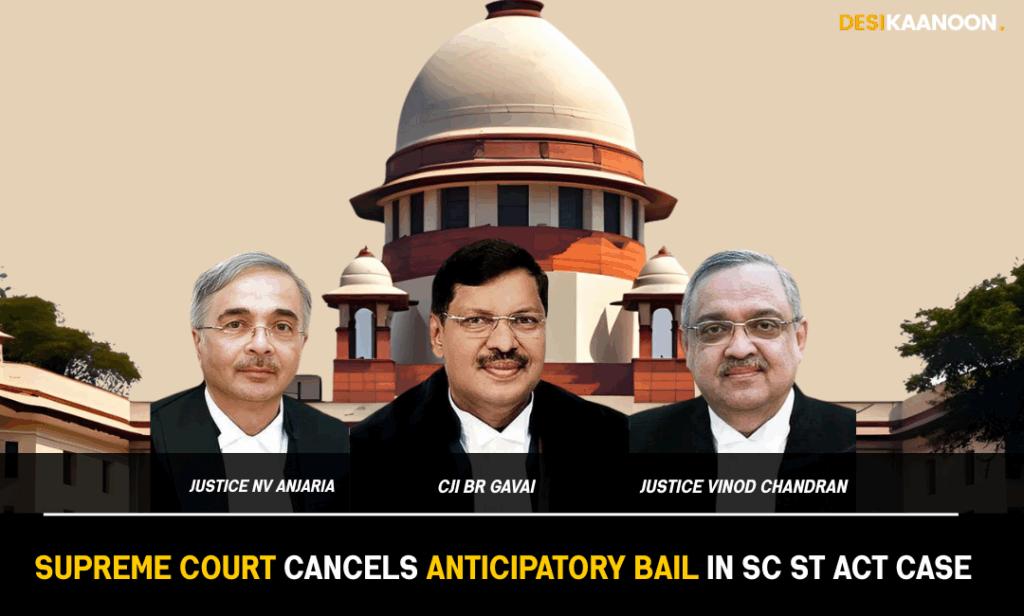Akhya Pandey
On 3rd September 2025, the Supreme Court delivered a significant ruling on anticipatory bail under the Scheduled Castes and Scheduled Tribes (Prevention of Atrocities) Act 1989, making it clear that such relief cannot be granted if the complaint on its face discloses a caste-related offence.
A three-judge Bench of Chief Justice B R Gavai, Justice K Vinod Chandran and Justice N V Anjaria struck down a Bombay High Court order that had allowed anticipatory bail to a man facing allegations of assaulting and insulting a Scheduled Caste family in Maharashtra. The top court made it clear that when a complaint discloses a caste-related offence under Section 18 of the Scheduled Castes and Scheduled Tribes (Prevention of Atrocities) Act 1989 of the law blocks any scope for anticipatory bail.
The case was brought by Kiran, a resident of Dharashiv district and a member of the Matang community. He alleged that soon after the assembly elections, Rajkumar Jivraj Jain and others surrounded his family, hurled caste-based insults in public view, threatened to set his house on fire, and attacked him with rods. The trial court refused to grant anticipatory bail, but the Bombay High Court intervened and offered protection, reasoning that the allegations were politically charged and exaggerated.
The judges held that the allegations, if accepted on their face, attracted specific provisions of Section 3 of the Act. Once that happens, the bar under Section 18 is automatic, leaving no space for a High Court to weigh evidence or speculate about motives at the bail stage. The order granting protection was therefore cancelled.
The Bench did recognise a very narrow exception. If a complaint, read plainly, does not reveal any offence under the Act, courts are free to consider anticipatory bail under Section 438 of the Code of Criminal Procedure. But the judges stressed that this assessment cannot cross into testing witness credibility or examining contradictions, which would amount to a mini trial before the case even begins.
By restoring the trial court’s position, the Supreme Court reinforced the protective scheme of the 1989 Act, designed to safeguard marginalised groups from humiliation, intimidation and violence. At the same time, the Court acknowledged concerns of misuse but confined the safeguard to the rare situation where the complaint itself does not touch the law.
Bench: Chief Justice B R Gavai, Justice K Vinod Chandran and Justice N V Anjaria
Case Name: Kiran v. Rajkumar Jivraj Jain and Another
Citation: 2025 INSC 1067
Case Number: Special Leave Petition (Criminal) No. 8169 of 2025
Instagram: Click Here.
LinkedIn: Click Here.
For Collaboration and Business: Click Here.

